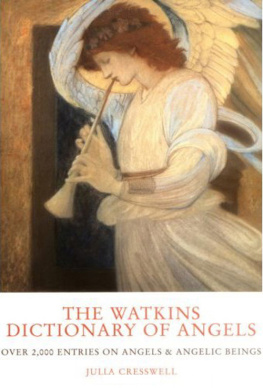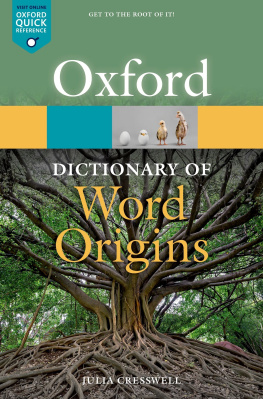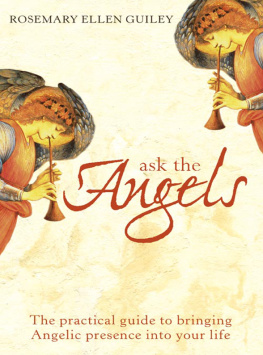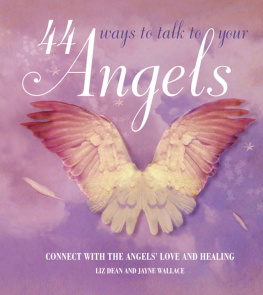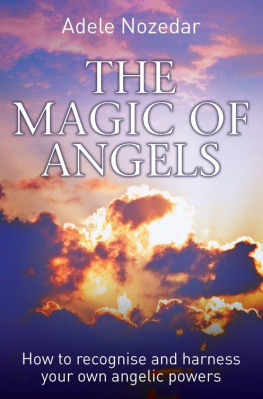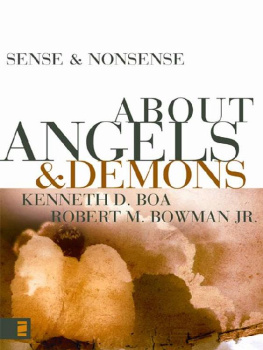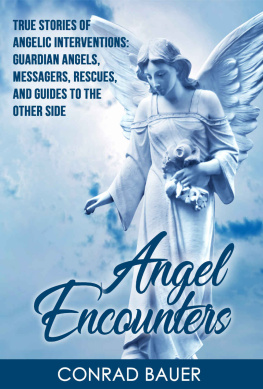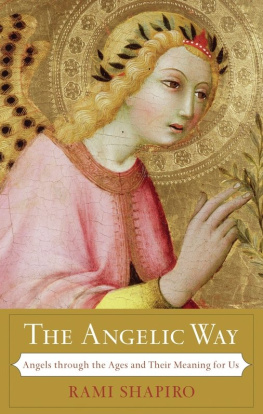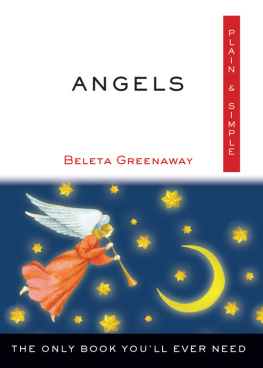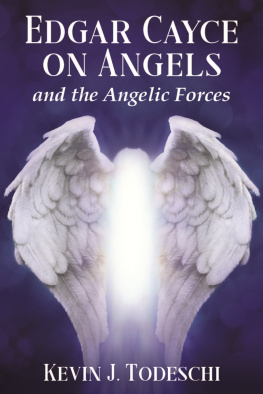Julia Cresswell - The Watkins Dictionary of Angels: Over 2,000 Entries on Angels and Angelic Beings
Here you can read online Julia Cresswell - The Watkins Dictionary of Angels: Over 2,000 Entries on Angels and Angelic Beings full text of the book (entire story) in english for free. Download pdf and epub, get meaning, cover and reviews about this ebook. year: 2012, publisher: Watkins Media, genre: Religion. Description of the work, (preface) as well as reviews are available. Best literature library LitArk.com created for fans of good reading and offers a wide selection of genres:
Romance novel
Science fiction
Adventure
Detective
Science
History
Home and family
Prose
Art
Politics
Computer
Non-fiction
Religion
Business
Children
Humor
Choose a favorite category and find really read worthwhile books. Enjoy immersion in the world of imagination, feel the emotions of the characters or learn something new for yourself, make an fascinating discovery.
- Book:The Watkins Dictionary of Angels: Over 2,000 Entries on Angels and Angelic Beings
- Author:
- Publisher:Watkins Media
- Genre:
- Year:2012
- Rating:5 / 5
- Favourites:Add to favourites
- Your mark:
- 100
- 1
- 2
- 3
- 4
- 5
The Watkins Dictionary of Angels: Over 2,000 Entries on Angels and Angelic Beings: summary, description and annotation
We offer to read an annotation, description, summary or preface (depends on what the author of the book "The Watkins Dictionary of Angels: Over 2,000 Entries on Angels and Angelic Beings" wrote himself). If you haven't found the necessary information about the book — write in the comments, we will try to find it.
The Watkins Dictionary of Angels: Over 2,000 Entries on Angels and Angelic Beings — read online for free the complete book (whole text) full work
Below is the text of the book, divided by pages. System saving the place of the last page read, allows you to conveniently read the book "The Watkins Dictionary of Angels: Over 2,000 Entries on Angels and Angelic Beings" online for free, without having to search again every time where you left off. Put a bookmark, and you can go to the page where you finished reading at any time.
Font size:
Interval:
Bookmark:
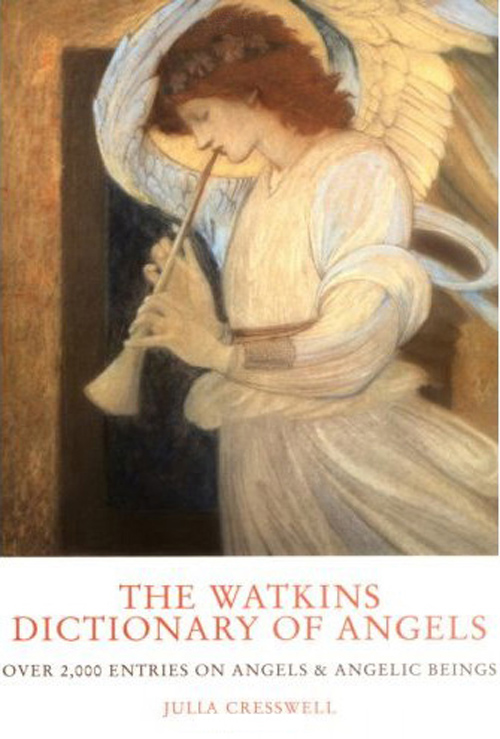
Julia Cresswell is a specialist in the history of language and medieval literature and has an MA and Doctorate in the field. She has worked as a researcher into the history of words for the Oxford English Dictionary and on dictionaries of quotations and has always spent part of the year teaching undergraduates. She divides her time between teaching undergraduates and adult education classes, looking after a small academic library and writing. She lives in Oxford.
By the Same Author
The Penguin Dictionary of Clichs
Scottish First Names
A Dictionary of Allusions
Collins Gem Dictionary of Irish First Names
The Hutchinson Dictionary of Business Quotations (written with Anna Leinster
Collins Pocket Reference First Names
Guinness Book of British Place Names (written with Fred McDonald)
Bloomsbury Dictionary of First Names
Collins Gem Dictionary of First Names
THE WATKINS
DICTIONARY
OF ANGELS
Julia Cresswell

This edition published in the UK 2006 by
Watkins Publishing, Sixth Floor, Castle House,
7576 Wells Street, London W1T 3QH
Text Copyright Julia Cresswell 2006
Julia Cresswell has asserted her right under the Copyright, Designs and Patents Act 1988 to be identified as the author of this work.
All rights reserved.
No part of this book may be reproduced or utilized in any form or by any means, electronic or mechanical, without prior permission in writing from the Publishers.
1 3 5 7 9 10 8 6 4 2
Designed and typeset by Jerry Goldie
Printed and bound in Great Britain
British Library Cataloguing-in-Publication data available
ISBN-10: 1-84293-198-9
ISBN-13: 978-1-780283-60-9
www.watkinspublishing.com
Finally, I come to the acknowledgments. I should like to thank Michael Mann, who had the idea of writing the book, and his editorial team. Also Ruby Radwan for talking to me about Islam, and Emilie Savage Smith for passing on some of her great expertise in Arabic culture and for suggesting some very useful books, and Philip Pullman for giving permission to quote from his works. I could not have found much of the information I needed without access to the Bodleian Librarys Oriental Reading Room; help that will not, alas, be there for others in the future as the Reading Room is to close. Last but not least, thank you to my family, Philip and Alexander, for the many and various forms of support they gave me while writing this book, not to mention all the cups of tea.
Where do They Come From A Brief History of Angels
When you start to write a book on angels, you suddenly realise how all-pervasive angels are in our culture. You see them all around you; not just in churches and art galleries, but in everyday decorations such as old carvings on buildings, supporting a coat of arms, or even on greetings cards. Even our language is full of angels, whether in the inane lyrics of a popular song, in proverbs (Fools rush in ) or in the lowly world of sweet foods.
Where does the idea of angels come from? It seems to be an almost inevitable companion to the idea of a supreme or superior God. Once peoples idea of the Divine progressed beyond that of a little local god, attached to a single person, place, family or tribe, they seem to have felt the need for some kind of intermediary between themselves and this awesome superior figure. Certainly, from India to Europe we find the idea of beings whose job is to help communication between the divine and the human. The same process seems to have happened with the tribes of Israel, as they passed through the difficult mental process involved in changing their understanding of the nature of their God from a tribal god to a universal supreme being. This is an enormous intellectual leap, and with it comes a problem. If you are used to thinking in terms of your God being one of many (even if a jealous one, who wants you to have no other), but who focuses solely on your people, it seems reasonable to feel close to Him and able to communicate with Him and there is good evidence in the Bible to show that this is how the God of the Jews started out. However, if He is the one all-powerful God, then your relationship with Him, and your ability to communicate with Him, becomes more problematical. The solution to this big gap is the intermediary, who can act as a means of communication in both directions. The greater the emphasis on monotheism, the greater seems to be the need to find some way of personifying the forces of nature. In some religions it may be the minor deity; in others an ancestor spirit which takes this role. For still others, and not just in some branches of Christianity, it may be a saint. For many religions coming out of the Middle East, angels of some sort were the answer.
In the earlier books of the Bible there is not much lore about the angels. They usually appear in the form of men or fire, but there is not felt to be much need to elaborate about them. Their nature is ambiguous, and continued to be so, not least because in both the Old and New Testaments the basic words used for angel, malak and angelos, mean messenger and can be used with reference to angels or humans. It was largely left to commentators on the Testaments to develop ideas further.
It was not until the Jews came into contact with the belief systems of the Babylonians during their Exile that angelology really took off. As they came into contact with the beliefs of that area, their concepts of heaven and angels expanded and developed. The religion of the Persians was dualistic, believing in powers of good and bad, and this helped the development of the idea of the power of evil and the fall of the angels. The range of ways of imagining angels was also expanded by the iconography of Persian art, and it is to this we owe the original concept of the Cherubim and the Chariot of the Lord (discussed in the text under the entry for Merkabah). It is to the period of Exile that we also owe the visions of heaven as a hierarchy, the various degrees of angels attendant on God reflecting the structure and bureaucracy of the Persian court. It is because of this extensive influence of the Persian court that so much attention has been given in this work to the beliefs of Zoroastrianism, for this is a continuation of the belief system in place in Babylon. These comments regarding outside influences on the concept of what constitutes an angel or heaven should not be considered derogatory, or to suggest any falling away from an original truth. All such descriptions are, after all, merely attempts to put into words the inexpressible, and it is inevitable that the cultural environment influences the ways in which people try to do this.
Other entries in this book will show the way in which Western Christianitys concept of the appearance of angels, which is profoundly different from the earlier Middle Eastern one, was fundamentally influenced by Greek and Roman iconography. Even today we are influenced by the ideas of the past. One has only to consider the trappings of Christmas. The importance of the birth in the stable-cave at Bethlehem and the role of the star which guided the Magi (often interpreted as Zoroastrians) owes much to the iconography of Mithraism, one of the dominant religions in the Roman world of the first century. In subsequent centuries we have added to our social customs surrounding the feast, much taken from Germanic paganism. Thus we have transformed Saint Nicholas, once a Turkish bishop, into Santa Claus, a Winter Spirit whose northern home is far from his original homeland, and whose standard red-and-white costume goes back to a soft-drinks advertisement. But just because you can trace the use of mistletoe back to Druid customs, it does not mean that anyone using it as part of the Christmas festivities is actually following Druidic beliefs. In the same way, the extraordinary way that any pool of water in a public place immediately gets coins thrown into it does not mean that people who deposit the coins, with at most a feeling that it is good luck, are consciously participating in a tradition of making sacrifices in water that goes back to at least the Bronze Age.
Font size:
Interval:
Bookmark:
Similar books «The Watkins Dictionary of Angels: Over 2,000 Entries on Angels and Angelic Beings»
Look at similar books to The Watkins Dictionary of Angels: Over 2,000 Entries on Angels and Angelic Beings. We have selected literature similar in name and meaning in the hope of providing readers with more options to find new, interesting, not yet read works.
Discussion, reviews of the book The Watkins Dictionary of Angels: Over 2,000 Entries on Angels and Angelic Beings and just readers' own opinions. Leave your comments, write what you think about the work, its meaning or the main characters. Specify what exactly you liked and what you didn't like, and why you think so.

